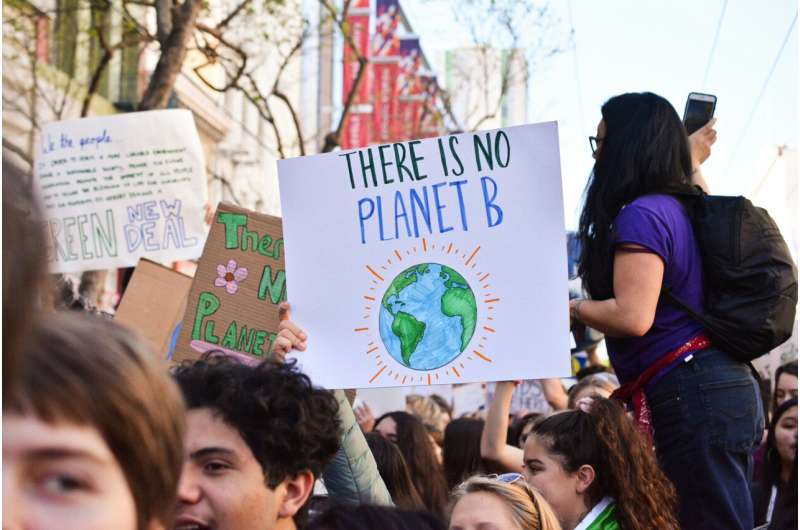This article has been reviewed according to Science X's editorial process and policies. Editors have highlighted the following attributes while ensuring the content's credibility:
fact-checked
peer-reviewed publication
trusted source
proofread
Study: While most of the world trusts climate scientists, a skeptical minority can lead to climate inaction

While most people worldwide trust climate scientists, a small, skeptical minority—such as conservatives in the U.S.—can lead to climate inaction, reports Viktoria Cologna of Harvard University and colleagues in a new article published May 23 in the open-access journal PLOS Climate.
According to climate experts, the window to address climate change and secure a livable and sustainable future is rapidly closing. However, most countries are not on track to reduce their emissions, largely due to powerful political and economic actors, like companies and lobbying groups, preventing action and attempting to undercut public trust in climate science.
In the new review, Cologna's team conducted a comprehensive narrative review of the current academic literature to investigate the possibility that a lack of public trust in climate science and climate scientists may be undermining the effectiveness of climate science communication to the public.
The researchers found that, while the percentage of people who trust climate scientists varies by country, worldwide, a majority of people find them to be trustworthy. Additionally, in many regions, confidence in climate science has increased in recent years. In the U.S., the people who are skeptical and spread false or misleading information about climate science are most often political conservatives.
The review article also reports that scientists can still be considered trustworthy if they advocate for greater climate action in general, but their credibility may take a hit when they advocate for specific climate policies, depending on the policy's popularity.
The researchers advise that climate scientists can increase their trustworthiness by demonstrating competence, benevolence, integrity and openness, and by "walking the walk" to reduce their personal carbon footprints.
Overall, the review finds that that narratives of widespread distrust in climate science are incorrect. However, distrust from even a minority of the public can have political consequences and lead to climate inaction.
The authors add, "Our narrative review shows that a large share of national publics perceive climate scientists and climate science as trustworthy. However, distrust in climate science can be politically consequential and should be taken seriously, even if exhibited by only a minority of the public."
More information: Cologna V, Kotcher J, Mede NG, Besley J, Maibach EW, Oreskes N (2024) Trust in climate science and climate scientists: A narrative review. PLOS Climate (2024). DOI: 10.1371/journal.pclm.0000400
Journal information: PLOS Climate
Provided by Public Library of Science




















